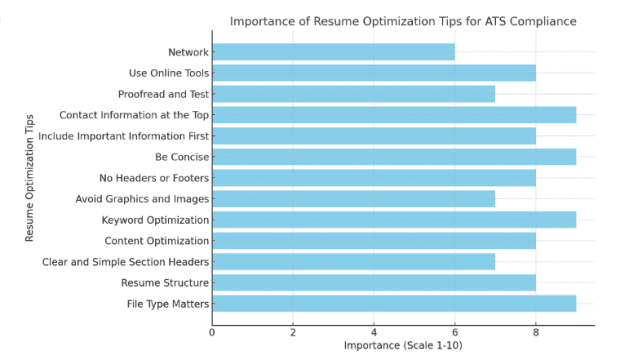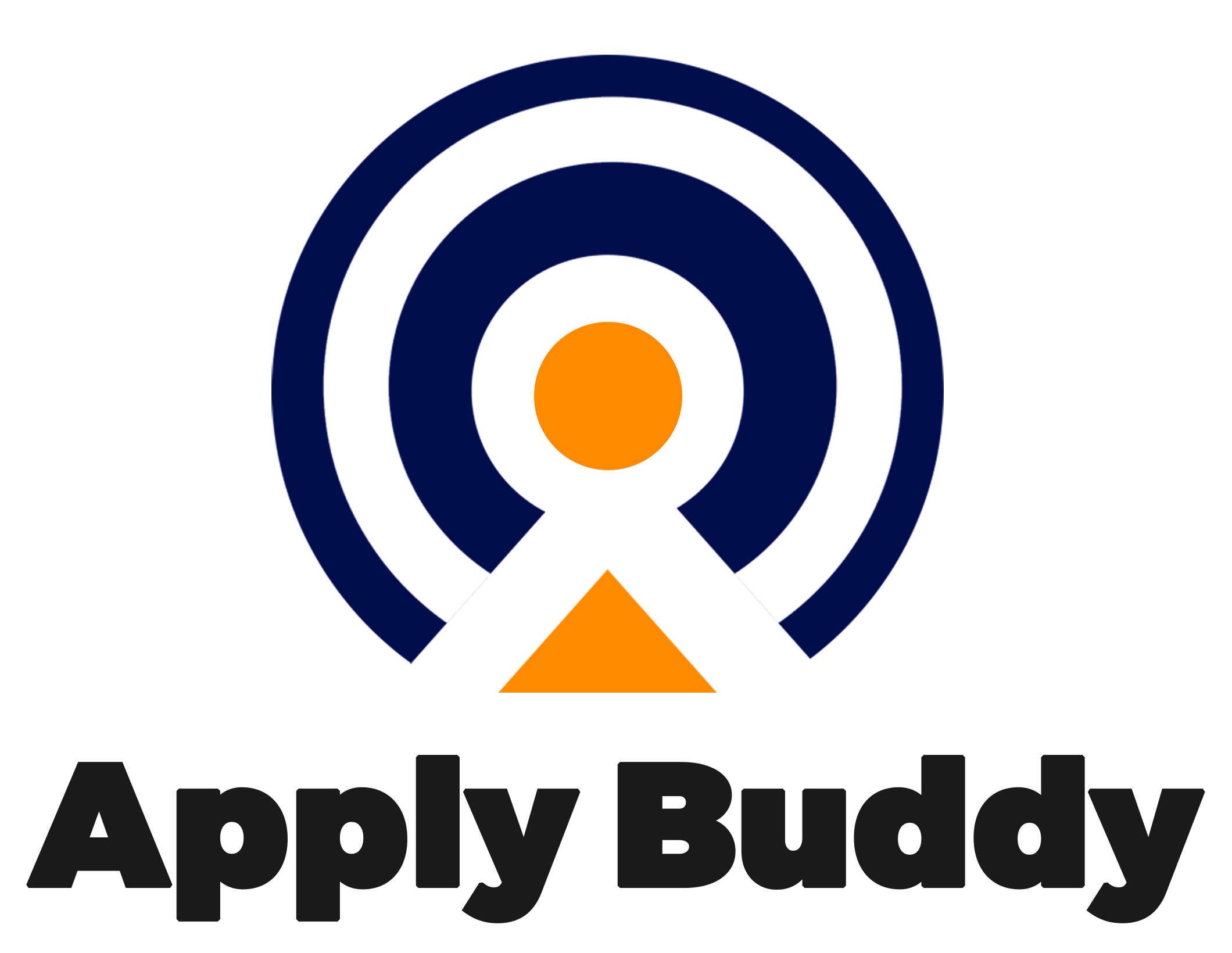In the current fiercely competitive job landscape you’ve got to play smart to get noticed. You know how it is, right? Resume keyword optimisation isn’t just a buzzword—it’s practically a survival tactic. Let me break it down for you: keywords are those specific terms hiring managers and ATS bots are literally scanning for—think job-related skills, qualifications, or industry jargon.
Now, here’s the deal: if your resume doesn’t include those keywords, it’s like shouting into a void. Seriously, why? Because recruiters use them to filter through stacks of applications, and ATS systems? They’re basically robots gatekeeping your dream job. But here’s where it gets interesting: when you strategically sprinkle those keywords into your resume, magic happens.
Wait, how? Well, suddenly your resume isn’t just visible to ATS—it’s ranked higher. And guess what? Human recruiters notice too. They’re skimming for relevance, and keywords act like little neon signs saying, “Hey, this candidate gets it!” But hold on—there’s a catch. You can’t just stuff them in randomly.
In fact, according to a study by the Harvard Business School, ATS technology screens out qualified applicants in 88% of companies because they don’t have the right keywords in their resumes.
So, what does this mean for you? Simple: take 10 minutes to analyse the job description. Spot the repeating phrases, hard skills, or tools they care about. Then, mirror that language. Trust me, it’s like giving your resume a VIP pass through the hiring process.
Bottom line? Keywords aren’t just checkboxes—they’re your ticket to getting seen, shortlisted, and hired. Ready to level up?
See Also: How to Identify Your Career Goals and Find a Fulfilling Path
See Also: How To Write a Resume For a Career Change
What is Resume Keyword Optimisation?

Resume keyword optimisation is strategically incorporating specific words and phrases into your resume to align with the requirements of a job description. These are essential skills for your resume and can be industry-specific terms, skills, job titles, or other relevant jargon that match the criteria set by hiring managers and Applicant Tracking Systems (ATS). By embedding these keywords, your resume has a better chance of getting noticed by automated systems and human recruiters.
See Also: How to Optimise Your CV to Get Interviews in the UK
See Also: How to Write an ATS-Friendly CV
How it Helps in Passing Applicant Tracking Systems (ATS)
Applicant Tracking Systems (ATS) are software tools employers use to manage the overwhelming number of resumes they receive for job openings. ATS scans resumes for specific keywords to determine if a candidate’s experience and skills match the job requirements. Understanding how ATS works and tailoring your resume to include the right keywords can significantly improve your chances of making it through this initial screening process.
Key Benefits of Passing ATS: You may wonder why professionals bolster the need to optimise your CV with ATS in mind. Below are a few vital reasons;
- Increased Visibility: Resumes that pass ATS filters are more likely to be seen by human recruiters.
- Enhanced Relevance: Incorporating relevant keywords shows that your qualifications match the job description, making you a more attractive candidate.
- Time Efficiency: ATS quickly identifies suitable candidates, speeding up the hiring process for employers and job seekers.
Why Keywords Matter in Resumes

Keywords play a crucial role in the modern job search landscape. They bridge what employers are looking for and what you offer as a candidate. Resume statistics prove that around 63% of recruiters like to get resumes personalised to the job position. Including the right keywords in your resume can significantly impact your chances of getting noticed and moving forward in the hiring process. Here’s why they matter:
– ATS Optimisation: As mentioned earlier, most companies use ATS to filter resumes. If your resume lacks the necessary keywords, it might be discarded before a human sees it.
– Relevance to Job Descriptions: Keywords help demonstrate that you have the specific skills and experience required for the job. This makes your resume more relevant and tailored to the position.
– Highlighting Key Skills: Keywords can emphasise your core competencies and achievements, making them stand out to recruiters who quickly scan resumes.
– Industry Standards: Using industry-specific terms shows you are knowledgeable and up-to-date with your field’s trends and practices. For example, having EHR on your CV as a healthcare professional represents you positively to recruiters.
How to Identify Relevant Keywords
Identifying the right keywords to include in your resume is essential for effective optimisation. Here’s how you can find them:
- Analyse Job Descriptions: Job descriptions are gold mines for keywords. Carefully read several job postings for the positions you’re interested in and highlight the standard terms, phrases, and skills mentioned. These are the keywords you need to include in your resume.
- Research Industry-Specific Terms: Different industries have their own jargon and terminology. Make sure to incorporate these industry-specific terms into your resume to show you are well-versed in the field. This can include technical skills, software proficiency, certifications, and methodologies relevant to your industry.
- Use Tools for Keyword Analysis: Several tools can help you identify and analyse the right keywords for your resume:
- Jobscan: This tool compares your resume against job descriptions to identify missing keywords.
- Keywords Everywhere: A browser extension showing keyword data on various platforms, helping you understand which frequently searched terms.
- Google Trends: Use this tool to see the popularity of specific keywords over time and understand which terms are trending in your industry.
- LinkedIn: Check profiles of professionals in similar roles to see the keywords they use in their profiles and job descriptions.
Incorporating Keywords Effectively
Incorporating keywords into your resume requires a strategic approach to ensure they are naturally embedded and enhance the overall readability of your resume. Here’sHere’so, do it effectively:
1. Placement in Different Sections: Find below placement tips for your resume;
- Summary: One of the first sections recruiters read is the resume summary. Include critical terms that reflect your core competencies and align with the job description.
- Experience: Each job entry should include relevant keywords that describe your duties and achievements. Highlighting these keywords shows how your past roles relate to the new position.
- Skills: A dedicated skills section is an excellent place to list specific keywords. Make sure to include both hard and soft skills relevant to the job.
- Education and Certifications: Include keywords about your educational background and any certifications relevant to the job.
2. Balancing Keyword Density: A good balance of keyword density involves a natural and effective flow of industry-specific skills and core competencies to solidify your chances of passing through the ATS and landing the job. How to balance keyword density;
- Natural Integration: Keywords should fit naturally into your resume. Avoid forcing them into sentences where they don’t belong, as this can make your resume difficult to read.
- Variety: Use a mix of exact keywords and their synonyms to avoid redundancy. This also helps cover different variations that an ATS might look for.
3. Avoiding Keyword Stuffing: To avoid keyword stuffing, your resume should remain easy to read and understand. Overloading it with keywords can make it appear spammy and unprofessional. You also have to ensure that keywords are used in the proper context. Misusing terms can mislead recruiters and ATS, resulting in a negative impression.
See Also: 120 Essential Skills To List on a Resume
See Also: How To Find a Job After Being Laid Off
Common Mistakes to Avoid
Do you know that something as trivial as an unprofessional email address can send your application to the trash can? This is among the shocking statistics showing why your resume keyword optimisation and formatting must be done correctly. When optimising your resume with keywords, avoiding common pitfalls is essential. This is essential because just one mistake may cost you the offer. Here are some mistakes to avoid:
- Overusing Jargon: While industry-specific terms are essential, overloading your resume with jargon can make it hard to read and understand. Strike a balance between technical terms and explicit language.
- Ignoring Context: Keywords should fit naturally within the context of your experiences and skills. Using keywords out of context can make your resume seem forced and inauthentic.
- Focusing Only on Hard Skills: While hard skills are essential, soft skills are equally important. Many ATS and recruiters look for a balance of both. Ensure to include relevant soft skills such as teamwork, communication, and problem-solving.
- Generic Language: Avoid using overly generic terms that don’t align with your resume. Be specific about your skills and experiences.
- Irrelevant Information: Including information that is not relevant to the job can clutter your resume and distract from your key qualifications.
- Neglecting Updates: Regularly update your resume to include new skills, experiences, and keywords relevant to the latest job market trends.
Tools and Resources for Keyword Optimisation

Leveraging the right tools and resources to optimise your resume with the right keywords can make a significant difference. These tools can help you identify the most relevant keywords, ensure your ATS-friendly resume, and enhance your overall job application process.
ATS-friendly Tools
Applicant Tracking Systems (ATS) are designed to scan resumes for specific keywords to determine if a candidate meets the job requirements. Using ATS-friendly tools can help ensure your resume passes this initial screening.
- Jobscan: Jobscan compares your resume to job descriptions and provides a match rate. It highlights missing keywords and offers suggestions to improve your resume and resume’s compatibility with ATS.
- Resunate: Resunate scores your resume against job descriptions, showing how well it matches and suggesting improvements for better alignment with ATS.
- SkillSyncer: SkillSyncer analyses your resume and job descriptions to identify relevant keywords and highlight areas for improvement, making it easier to optimise your resume for ATS.
Keyword Research Tools
Finding the right keywords can be a drag, which bolsters the need for keyword research tools. Identifying the right keywords is essential for effective resume optimisation. Several tools can help you find and analyse relevant keywords for your industry and job role.
- Google Trends: Google Trends allows you to see the popularity of specific keywords over time, helping you understand which terms are trending in your industry.
- LinkedIn: Use LinkedIn to research profiles of professionals in similar roles. Identify the keywords they use in their job titles, descriptions, and skills sections to get an idea of what to use.
- Keywords Everywhere: This browser extension provides keyword data on various platforms, showing search volume, competition, and cost-per-click for specific terms.
- SEMrush: SEMrush is a comprehensive tool that offers keyword research features. You can analyse keywords, view their search volume, and identify related terms relevant to your resume.
See Also: What Are The Best UK Job Sites To Use When Applying For Jobs
See Also: How to Find a Job with No Experience
Conclusion
Resume keyword optimisation is a critical step in the job application process. By understanding the importance of keywords, knowing how to identify and incorporate them effectively, and avoiding common mistakes, you can significantly improve your chances of passing ATS filters and catching the attention of recruiters. Remember, the goal is to create a resume highlighting your qualifications and aligning closely with the job you are applying for.
Stay updated with the latest industry trends, continuously refine your resume, and leverage the right tools to ensure your resume remains relevant and impactful. With these strategies, you’ll be on your way to landing your desired job.
Elevate Your Job Search with Apply Buddy

At Apply Buddy, we specialise in helping you land your dream job, allowing your skills, achievements, and experience to catch the attention of hiring managers. Our team of experienced career experts understands the nuances of various industries and ensures you get the interview. Trust Apply Buddy to provide you with a professional, polished, and convenient job search that will increase your chances of landing your dream job.
FAQs for Resume Keyword Optimisation
1. What are the best practices for keyword placement in a resume?
Best practices for keyword placement include:
– Summary Section: Include key terms reflecting your primary skills and experiences.
– Experience Section: Use keywords to describe your responsibilities and achievements in each role.
– Skills Section: List relevant hard and soft skills that match the job description.
– Education and Certifications: Highlight industry-specific keywords related to your academic background and certifications.
2. How often should you update keywords in your resume?
It is ideal to regularly update keywords in your resume, especially when applying for a new job, gaining new skills or experiences and industry changes.
3. Can using too many keywords negatively impact your resume?
Yes, using too many keywords, or keyword stuffing, can negatively impact your resume by reducing readability, appearing unprofessional, misleading ATS and recruiters, confusing ATS and recruiters, and reducing the chances of your resume being considered.
4. How do you tailor keywords for different job applications?
To tailor keywords for different job applications, analyse each job description, identify the specific skills and experiences, customise your resume, and highlight relevant experiences using appropriate keywords.
